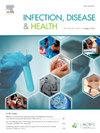Improvement in antibacterial use in intensive care units from Argentina: A quality improvement collaborative process evaluation using Normalization Process Theory
IF 2
Q2 PUBLIC, ENVIRONMENTAL & OCCUPATIONAL HEALTH
引用次数: 0
Abstract
Background
Healthcare-associated infections and antibiotic resistance worsen globally. Antibiotic stewardship programs (ASP) aim to optimise infection treatment and curb resistance, yet implementation hurdles persist. This study examined ASP challenges in ICUs.
Methods
This study employed a qualitative methodological design to evaluate the implementation process of an antibiotic stewardship program (ASP) in eight intensive care units (ICUs) across Argentina. Thirty-four semi-structured interviews with healthcare workers (HCWs) were conducted. Interviews were analysed guided by Normalisation Process Theory, examining coherence, cognitive participation, collective action, and reflexive monitoring constructs.
Results
Key challenges included insufficient human resources, lack of institutional support, and resistance to change, particularly among staff not initially involved in the study. Despite these challenges, the program saw partial success in improving ICU practices, particularly in antibiotic use and communication across departments. The main strategy implemented in this quality improvement collaborative was the use of improvement cycles, which served as the central component for driving change. However, participation in improvement cycles was inconsistent, and sustainability post-intervention remains uncertain due to workload pressures and the need for continuous education. Concerns about workload and communication barriers persisted. Many participants did not perceive training as a separate component, which led to low engagement. Resistance to change became evident during modifications to clinical guidelines. The intervention had a positive impact on various processes, including communication and record keeping.
Conclusion
This study underscores the persistent challenges in implementing ASPs in healthcare, emphasising the need for enhanced collaboration, workforce capacity building, and evidence-based practices to overcome barriers and optimize antimicrobial use to improve patient outcomes.
改善阿根廷重症监护病房的抗菌药物使用情况:使用规范化过程理论进行质量改进协作过程评估。
背景:全球医疗相关感染和抗生素耐药性日益严重。抗生素监管计划(ASP)旨在优化感染治疗和遏制耐药性,但实施过程中仍存在障碍。本研究探讨了在重症监护病房实施抗生素管理计划所面临的挑战:本研究采用定性方法学设计,对阿根廷八家重症监护病房(ICU)的抗生素监管计划(ASP)实施过程进行评估。研究人员对医护人员(HCWs)进行了 34 次半结构式访谈。访谈以规范化过程理论(Normalisation Process Theory)为指导进行分析,考察了一致性、认知参与、集体行动和反思性监控等建构因素:主要挑战包括人力资源不足、缺乏机构支持以及对变革的抵制,尤其是最初未参与研究的员工。尽管面临这些挑战,但该计划在改善重症监护室的实践方面取得了部分成功,尤其是在抗生素使用和跨部门沟通方面。该质量改进合作项目实施的主要策略是使用改进周期,这是推动变革的核心组成部分。然而,参与改进周期的情况并不一致,而且由于工作量压力和持续教育的需要,干预后的可持续性仍不确定。对工作量和沟通障碍的担忧依然存在。许多参与者不认为培训是一个单独的组成部分,这导致参与度低。在修改临床指南的过程中,对变革的抵触情绪十分明显。干预措施对各种流程产生了积极影响,包括沟通和记录保存:本研究强调了在医疗保健领域实施 ASP 所面临的长期挑战,强调需要加强合作、劳动力能力建设和循证实践,以克服障碍并优化抗菌药物的使用,从而改善患者的预后。
本文章由计算机程序翻译,如有差异,请以英文原文为准。
求助全文
约1分钟内获得全文
求助全文
来源期刊

Infection Disease & Health
PUBLIC, ENVIRONMENTAL & OCCUPATIONAL HEALTH-
CiteScore
5.70
自引率
5.70%
发文量
40
审稿时长
20 days
期刊介绍:
The journal aims to be a platform for the publication and dissemination of knowledge in the area of infection and disease causing infection in humans. The journal is quarterly and publishes research, reviews, concise communications, commentary and other articles concerned with infection and disease affecting the health of an individual, organisation or population. The original and important articles in the journal investigate, report or discuss infection prevention and control; clinical, social, epidemiological or public health aspects of infectious disease; policy and planning for the control of infections; zoonoses; and vaccination related to disease in human health. Infection, Disease & Health provides a platform for the publication and dissemination of original knowledge at the nexus of the areas infection, Disease and health in a One Health context. One Health recognizes that the health of people is connected to the health of animals and the environment. One Health encourages and advances the collaborative efforts of multiple disciplines-working locally, nationally, and globally-to achieve the best health for people, animals, and our environment. This approach is fundamental because 6 out of every 10 infectious diseases in humans are zoonotic, or spread from animals. We would be expected to report or discuss infection prevention and control; clinical, social, epidemiological or public health aspects of infectious disease; policy and planning for the control of infections; zoonosis; and vaccination related to disease in human health. The Journal seeks to bring together knowledge from all specialties involved in infection research and clinical practice, and present the best work in this ever-changing field. The audience of the journal includes researchers, clinicians, health workers and public policy professionals concerned with infection, disease and health.
 求助内容:
求助内容: 应助结果提醒方式:
应助结果提醒方式:


